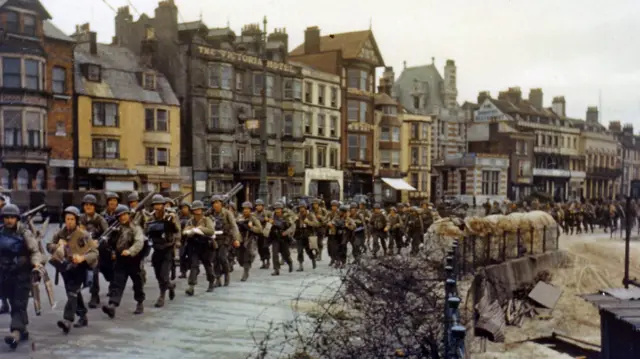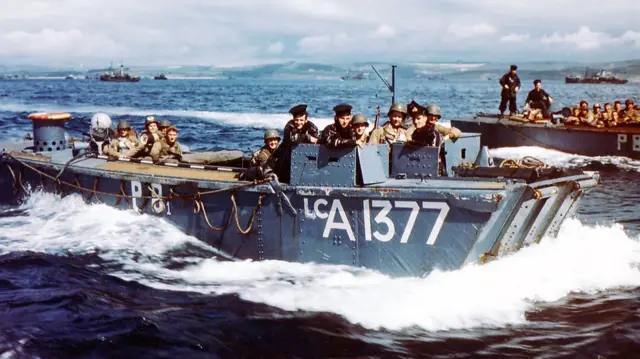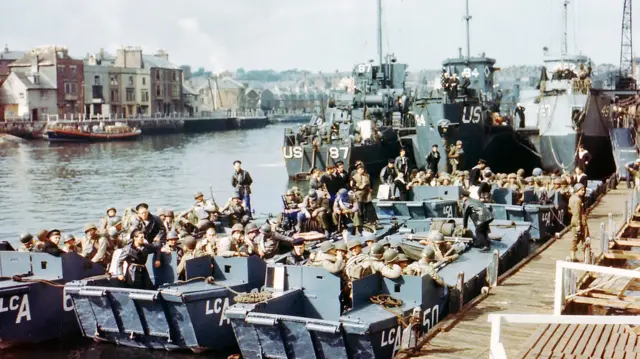The Isle of Wight's wartime secretpublished at 12:30 BST 8 May
How a secret piece of engineering, hidden on the Isle of Wight, fuelled Allied success
One of the reasons behind the success of D-Day and the eventual Allied victory in Europe was the remarkable technological innovations that supported the troops who landed on the Normandy beaches.
A massive bombproof pipeline - known as Pluto - went from the Isle of Wight to France to fuel the Allies' frontline as they advanced through Nazi-occupied Europe.


